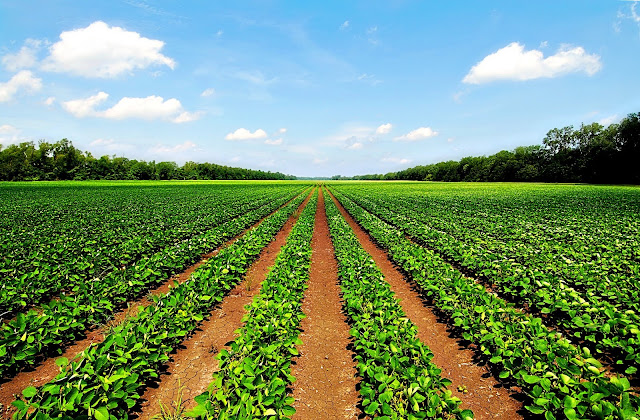Agriculture and agriculture-related disciplines

Agriculture has long been the focus of human civilization over the years and is still today one of the most pressing issues in developed societies, the idea of studying agriculture is not only about how to grow seeds and sheep wool, but also topics such as famine, development, genetic modification and sustainability The spread of epidemics is seriously intersected with agriculture, where graduates of agriculture colleges are looking for research and development in these areas.
Major Agricultural specialties
Agriculture topics and courses vary according to the university, while some colleges focus on preparing students to work internationally by providing courses such as sustainability and global food systems, other colleges focus on programs most related to agriculture such as crops and care Animals and marketing of agricultural products.
In general, during the course of his studies, the student acquires a wide range of technical and cognitive skills as well as understanding scientific, ethical and commercial principles in agriculture, the most important of which is agriculture.
Animal Science
One of the specialties involved in the study of biology and animal physiology, and the most prominent subjects taught by the student while attending this course are: immunology, genetics, and biochemistry. In addition, an applied aspect focuses on issues such as animal nutrition, reproduction, and productivity.
Soil Science
The soil being one of the most important elements in agriculture, the student will learn in this program how to analyze the biological, chemical and physical characteristics of the soil, which allows the experts to study issues such as increasing crop production, protecting human health and ensuring environmental sustainability.
Land Management
One of the fields of interest in planning, development and sustainability, focusing on tackling desertification and overcoming climate problems to ensure the production of large and high-quality crops.
Duration of study and admission requirements
The Bachelor's degree in agriculture is a multidisciplinary study program which drives some universities to ask applicants to be widely acquainted with the natural, social, environmental, biological and chemistry sciences, and the Universities of Britain usually require applicants to highlight A general secondary Certificate of Evaluation a demonstrates having a strong background in science.
In addition, international students from non-English speaking countries need to prove their ability in English through the performance of a TOEFL or IELTS test.
Career prospects
The professions associated with the agricultural sector are considered to be financially rewarding, with an average wage of about $62 thousand dollars a year in the United States, while some managers and experienced people may earn more than $80, 000 per year, a figure that varies by specialty and university. The state and the labor market.
Potential professionals include landowners, food and plantation companies, environmental conservation organizations, livestock trading companies and quality control companies.
The following is a list of the most prominent occupations that can be filled as a Bachelor of agriculture.
Agricultural Consultant
Is a specialist to provide advice and support to clients, including farmers and landowners, to ensure that they work as effectively as possible, and that these advisers usually provide advice on agriculture and livestock feeding as well as support in areas related With funding and business strategies, which may motivate some agricultural advisers to get an MBA to support their key career.
Geneticist
Plant breeders and geneticists aim to improve the quality of agricultural crops and to research the possibility of producing new hybrid varieties of crops, which is crucial in the agro-industrial sector due to environmental and climatic challenges that may affect the quality and yields of crops.
Top 10 universities to study agriculture
The list in agriculture is as follows:
- Wageningen University, the Netherlands
- California Davis University of California, Davis, United States
- Cornell Cornell University, United States
- Swedish University of Agricultural Sciences, Sweden
- University of California Berkeley, Berkeley (UCB), United States
- Wisconsin-Madison University of Wisconsin-Madison, United States
- Michigan State University, United States
- Purdue University, Purdue, United States
- Agro, Paris-tech, France
- Reading University of Reading, UK










No comments
Note: Only a member of this blog may post a comment.